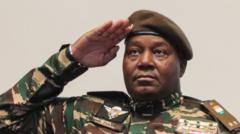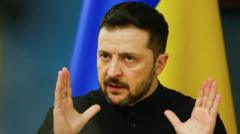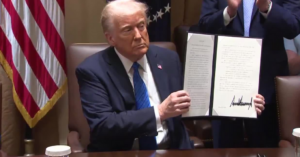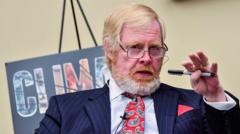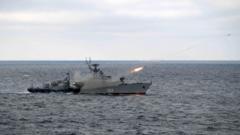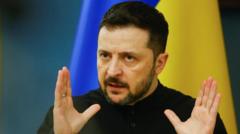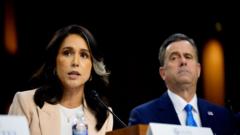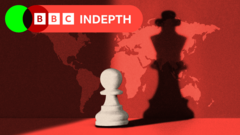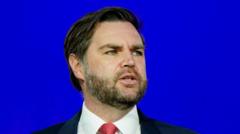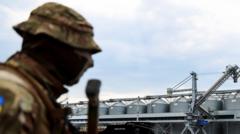Russian President Vladimir Putin is cautiously navigating U.S. President Donald Trump’s interest in halting the conflict in Ukraine, focusing on gaining strategic advantages while maintaining aggressive positions in the ongoing war.
Russia's Strategy Amid Trump’s Cease-Fire Push: Economic Opportunities and Geopolitical Gains

Russia's Strategy Amid Trump’s Cease-Fire Push: Economic Opportunities and Geopolitical Gains
As discussions between U.S. and Russian officials unfold regarding a potential cease-fire in Ukraine, Moscow appears to leverage the situation for broader benefits.
In a pivotal moment for international relations, the U.S. and Russian officials are slated to convene in Saudi Arabia to discuss the nuances of a partial cease-fire in Ukraine, primarily targeting sustained attacks on energy infrastructures and maritime vessels in the Black Sea. President Trump has positioned himself as eager to end the ongoing conflict, labelled by him as a “death march,” yet it seems that the Kremlin has different motivations underpinning the dialogue.
Despite Ukraine's readiness for a comprehensive truce, President Putin remains steadfast in his call for substantial concessions before considering any halt to military operations. This stark contrast reflects a complex strategic calculus from Moscow, which is keen on extracting maximum advantage from what it perceives as Trump’s earnestness for a resolution.
Interviews with key Russian foreign-policy officials at a recent security conference in New Delhi indicate a bifurcated approach to the negotiations. They suggest that Putin continues to pursue an extensive victory in Ukraine while simultaneously accommodating Trump's cease-fire initiative. This dual approach seems designed to enhance bilateral relations, translating to potential economic benefits for Russia despite ongoing offensives in Ukraine.
Vyacheslav Nikonov, deputy chairman of the foreign affairs committee in the Russian Parliament, highlighted the emergence of a “bilateral agenda” endorsed by both leaders, indicating a separate focus independent of the immediate Ukraine situation. This underscores the Kremlin's broader ambitions to recalibrate its relationship with Washington across various economic and geopolitical dimensions, all while maintaining its current military strategy in the region.




